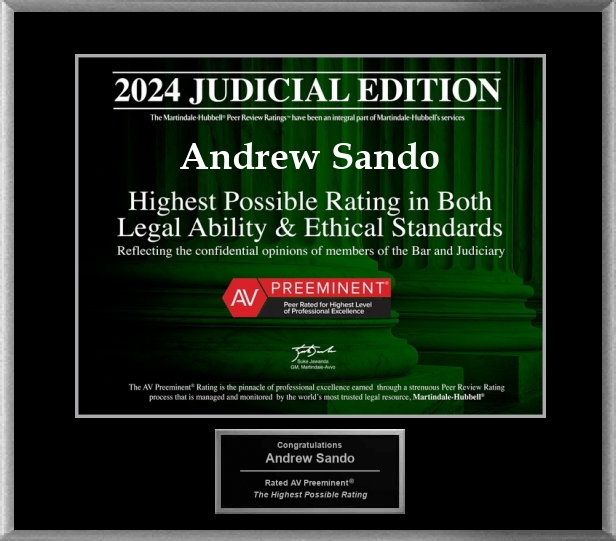In a best-case scenario, someone who was arrested and convicted of a crime in Florida—let’s say a misdemeanor charge of possession of an illegal controlled substance—will fulfill all the terms of the sentence, including mandatory jail time, paying a fine, completing a substance abuse treatment program, and going through probation. They will use the skills they learned during this time period to stay straight and start putting the pieces of their life back together. They find new housing. They take courses in computer programming since this is the career path that they were always hoping to follow. They get a new suit and a haircut before an interview with a prospective employer—and they sail through the interview with flying colors. But a week later the company calls to say that they won’t be offering the job. Chances are that the applicant’s criminal record came up in a background check, which prompted the recruiter to put a red line through this applicant’s name.
In fact, a background check could keep you from getting a job even if you were arrested but were not convicted or if the charges were dismissed. In addition to employment, having a criminal record of any kind can disqualify you for housing, education, or public assistance, and complicate your immigration status. For all the talk about rehabilitative justice, there is still a stigma attached to having a criminal record. Many states, including Florida, acknowledge this Catch-22 in the legal system by allowing certain criminal records to be sealed or expunged. Each of these legal options has strict protocols that must be met, so it’s wise to consult with an attorney who has expertise in getting criminal records in Florida sealed and expunged.
What does it mean to seal a criminal record?
When a criminal record is sealed, it remains on file but is only accessible to a limited number of individuals or agencies who have a compelling reason to see it. For instance, officials might be able to view your sealed record under the following circumstances:
- Subsequent criminal prosecution
- Employment application with a criminal justice agency
- Employment application with an agency that provides services to minors or people with disabilities
- Employment application with the Department of Education
- Employment application involving access to Florida seaport
- Application for a Florida Bar license
- Application for a license to purchase a firearm
Sealing a criminal record makes it inaccessible to a public background search. Therefore, a landlord or employer will not be able to find any record of your arrest or conviction and you are not legally required to disclose this information.
What does it mean to expunge a criminal record?
Expunging a criminal record means that it is destroyed, barring a single confidential copy that remains with the Florida Department of Law Enforcement (FDLE). A record can only be expunged if it meets all the standards within Florida legal statutes and the continued presence of this criminal record constitutes an unfair burden on the applicant. For instance, if you were arrested, either physically or through a Notice to Appear, but no further action was ever taken, you will still have a criminal record. Unfortunately, a background check won’t reveal this.
An expungement application may be approved under Florida Statutes for the following:
- Arrested but not charged
- Charges were dismissed under “nolle prosequi,” that is, the prosecution abandoned the case
- Judgment of acquittal or not guilty
- Juvenile offenders completed a diversion program for misdemeanor
- Issued a pardon, with instructions of seal or expunge stated
There are also some special circumstances that can qualify for expungement:
- Administrative expungement for mistaken arrest or wrongful criminal charges
- Lawful self-defense on grounds of justifiable use of force, known as the “stand your ground” defense
- Victims of human trafficking may be able to use self-defense as grounds to expunge their record of crimes such as prostitution
- Automatic or early expungement for qualified juvenile offenders
The FDLE can deny an application for expungement if your case falls within any of these categories:
- You were found guilty of a felony or certain misdemeanor charges
- Sex crimes with a minor; sexual battery; arson; aggravated assault or battery; manufacturing a controlled substance
- You are still on probation
- You have a prior expungement or sealing (expungement for records sealed more than a decade might be allowed)
What is the process of having records sealed or expunged?
The Florida Department of Law Enforcement (FDLE) does not make it easy to seal or expunge a criminal record, but it can be accomplished by fulfilling all their requirements.
For both processes, it is necessary to:
- Submit an application for a certificate of eligibility, which includes:
- The charges, date of arrest, arresting agency, or date for Notice to Appear
- Fingerprint form
- Letter from your legal representative
- $75 fee
- You must also provide a certified disposition of the charges (available from the county clerk of court), proof of probation termination, and, if relevant, evidence that you completed a mandatory diversion program.
- An expungement application also requires a certified statement of approval by the State Attorney or prosecutor.
Once they have all your paperwork, the FDLE will determine whether you are eligible under Florida legal statutes to have your criminal record sealed or expunged. If approved, you will then need to file a petition with the court.
How a Florida record expungement/sealing attorney can help you
Citizens in Palm Beach, Miami-Dade, Marin, Broward, and Monroe counties who have been arrested but never charged or who have paid their dues after being convicted of a criminal charge should get a “clean slate” so they can take their places as productive members of the community. The Florida Department of Law Enforcement agrees that this is fair—but they don’t make it easy to accomplish.
This process of sealing or expunging a criminal record can take up to a year to complete and any missteps along the way can further prolong the ruling. Sando Law, P.A., has helped clients obtain the confidentiality they need to move forward after an arrest so we are familiar with the drill. You can set up a free case review if you have any questions about the process by calling 561-296-1665, or toll-free at 833-SANDO-4U.
















